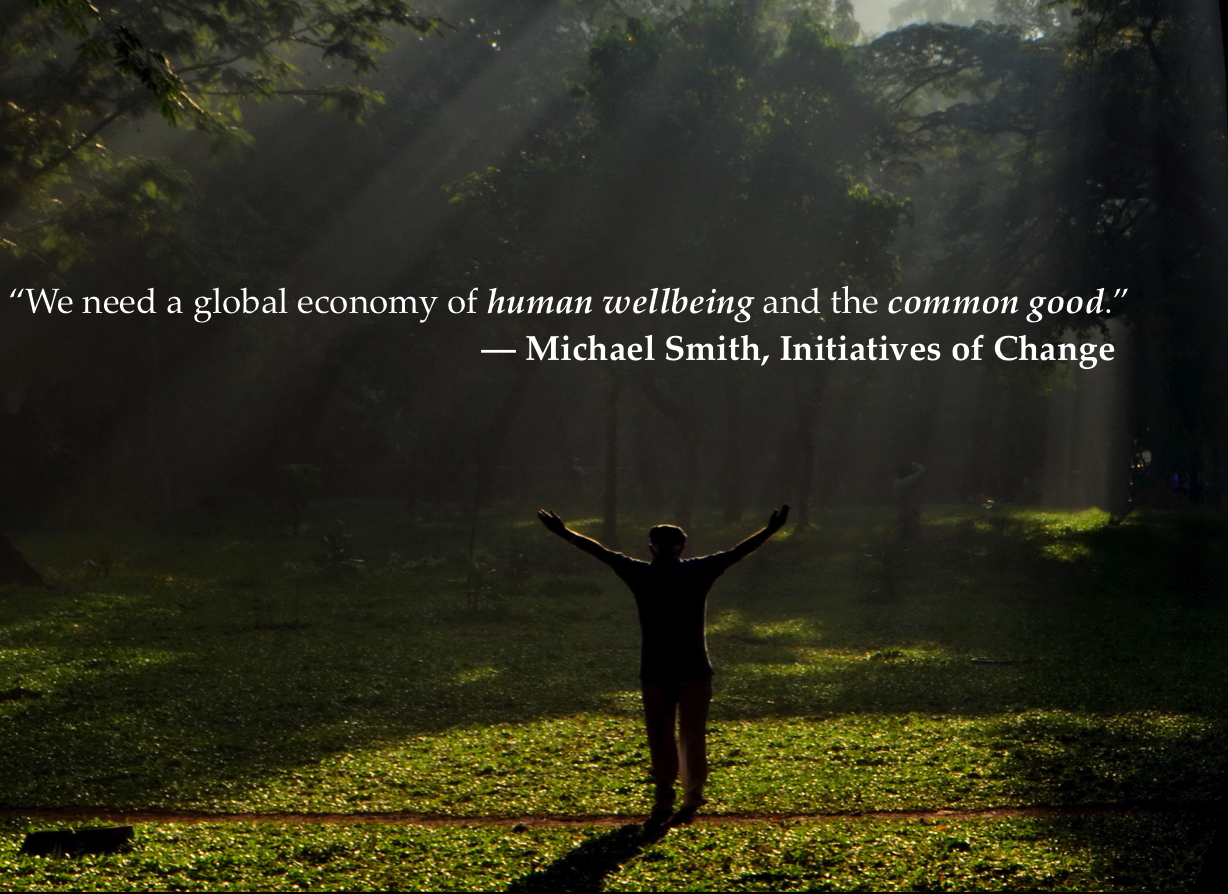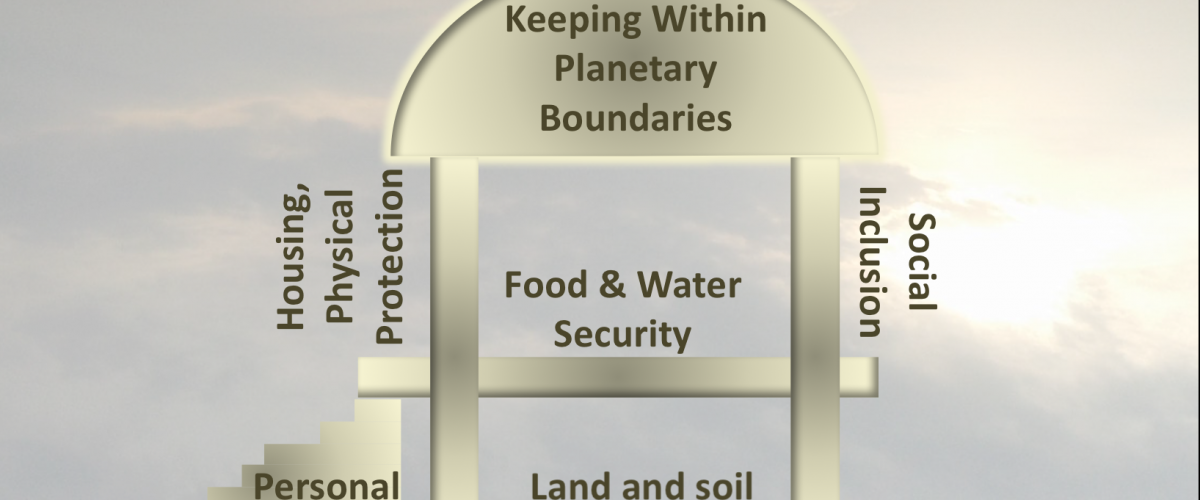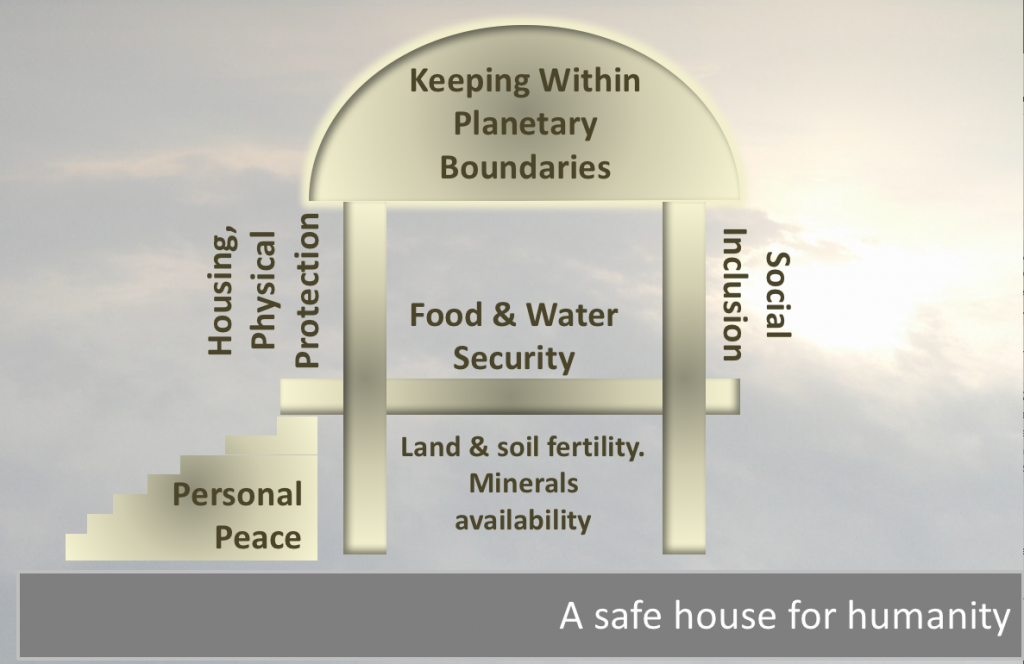Most of us would like to think that people taking important decisions – ones that affect our lives deeply – would be basing their judgement on deep criteria. We hope that they are being reasonable and rational, balancing long-term and short term, what is fair and what is equitable etc. What many might suspect, however, is that decision-maker’s logic is more ruled by the economics of the situation and the budget covering just the domain of their decision. Indeed, many social experiments like the Stanford Prison Experiment show how authority and social pressure alter decision making. Of course economics are important but should they be the trump card that overrules compassion, equity, decency and plain common sense?
What is the business of life?
What if we use the thinking of business and economics, but for one moment put aside money? What if we put peace as the main objective of human activity – our shared project – and designed our economy around that? This is the main thrust of Invest in Peace. The economics of peace if you will.
In the business of life, who is the customer?
The first question we would ask then, is who is the customer and what is their situation?
The answer is humanity and the situation we shall resolve is the lack of peace. Following on from this we can ask what are the needs we need to fulfill?
How can we understand the customers’ needs?
The way to discover needs is to look at factors that if they are not fulfilled then real suffering – life threatening – will occur.
Each and everyone of us must ask these questions but what is offered here is a start.
Dehydration – need for drinking water
Starvation – the need for food
Suffocation – the need for pure air to breathe
Exposure – the need for shelter
Depression – the need for inclusion
Peace – the need to feel peace
Sustainability – the need to be able to maintain the above within the budget of working hours in the day and resources from nature
A main product of the business of life is a safe house
The overall vision, then, of Invest in Peace is a safe house for humanity that is built to fulfill the requirements above. One way of illustrating the concept is below:
- The house is built from an experience of personal peace – the understanding from within of our true nature.
- The floor represents the immediate need of food and water security.
- Food and water security come from a just distribution of what the earth produces as well as ensuring the continued productivity of the earth which includes land functioning, soil fertility and availability of minerals such as iron.
- The physical protection we need is presented by one of the walls, and the other wall is social inclusion.
- All of this activity should be carried out within the limits of how the planet as a whole functions.
What is the capital needed in the business of life?
A safe and peaceful house for humanity implies development of capital – not financial – that correctly employed provides for these basic needs. We use the term capital in this context to mean something that is used but not used up:
Infrastructure capital
- Housing, labor-saving machines, tools etc.
Social capital
- Organisations, institutions of learning, information systems
Natural capital
- Mineral wealth available
- Functioning eco-systems
Human capital.
- Health, well-being
- Knowledge and capability
- Personal peace
What are the benefits of building a safe house for humanity?
Fulfilling basic needs for everyone reduces the risk of conflict, reduces long terms risks of short-term desperate behaviour, and allows people more opportunity for personal peace.
Focussing on planetary boundaries means that society develops a culture that is long-term, giving more security to people that their offspring will be safe.
Placing personal peace at the heart of human culture unites people – regardless of race, creed, religion as it focusses on what is inherent in us all and provides the basis for peaceful existence by putting similarities -not differences – at center.
Working to regenerate and maintain functioning eco-systems and mineral cycles – in essence the circular economy – offers efficient use of our working time and resources.
The social inclusion in the safe house gives the kind of security needed to eliminate inequality, class suppression and the exclusion that ends up causing illness and conflict.
Questions about the business of life
Is competition not good for society?
Sure! Competition focusses the mind and is part of our nature but it should not result in anyone being hungry because they lose. A safe house for humanity encourages competition within limits.
Surely, some people earn money on conflicts so people will always be stirring trouble?
A safe house for humanity is constructed in a way that it is better business to provide for needs rather than creating shortages. There is much research available that shows that conflicts in the end cost far more than peace.
Aren’t people naturally aggressive and war-loving?
People go to war when they feel threatened. When we create a culture of peace this reduces – we can’t say eliminates – people feeling threatened. We after all base out ideas on that there is enough to go around!
How will we pay for this? Can we afford it?’
There is more money in the world today than there has ever been. Interest rates are historically low. The cost of conflict has long-term negative impacts on financial capital and profits. The business case for building a safe house for humanity seems simple.
How do I invest in the business of life?
The first thing to do is to pursue personal peace. When you are at peace you can spread that to others. Our Peace Bank members offer peace education, for example.
And you are welcome to add your organisation to the Peace Bank and together we can do more for peace that way!


